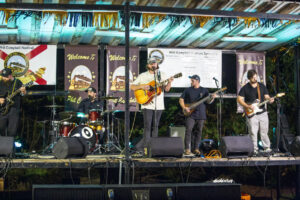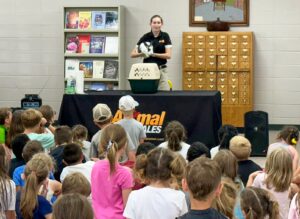Norton to speak on new security threat
By Staff
From staff reports
The groups that may pose the greatest threats to U.S. domestic security are not necessarily radical Islamist but extremist animal rights and earth liberation groups within our borders -- groups bent on avenging presumed acts of violence to animals or the environment.
It's a growing concern among a number of state and federal law enforcement professionals throughout the United States. They have even coined a name for it: ecoterrorism.
Dr. Robert Norton, an Alabama Cooperative Extension System biosecurity specialist and Auburn University professor of veterinary bacteriology and biosecurity, has monitored the rise of these groups and will explore this threat during a visit to the Franklin County area, April 3 and 4.
Norton will discuss this topic at noon, Tuesday, April 4 at the Russellville Civitan Club, which meets at Jonathan's Steakhouse, located on Highway 43 across from Russellville Hospital.
During his visit, Norton also will discuss another serious threat to U.S. agriculture -- avian flu.
He will explore the avian flu threat on “What's Happening in the Tennessee Valley,” a local cable television program with host Cecil Langcuster. The program will air Tuesday, April 4, at 5 p.m. and Wednesday, April 5 at 8:30 p.m.
Norton will also discuss this threat during an appearance at Coldwater Books, Tuscumbia, Tuesday at 2:30 p.m.
Ecoterrorism already has occurred with alarming frequency in the United Kingdom and Europe, targeted primarily to biotechnology executives and scientists. The United States, however, has not been immune to such acts – a fact underscored recently by the indictments of 11 people charged with committing acts of domestic terrorism on behalf of the Earth Liberation Front and Animal Liberation Front.
Equally troublesome to Norton and other experts are changes in these groups' behavior since the Sept. 11 attacks. Ecoterrorist groups are not only becoming better organized but are networking – seeking financial support from other radical groups that share their anti-American, anti-corporate views. In some cases, they even have adopted Jihadist tactics patterned after al Quaeda.
Most of these groups remain small, Norton says. Even so, this smallness often works to their advantage. Some radical groups have learned to operate in small groups as a form of survival, and the government is finding these cells increasingly hard to infiltrate.
While all of the recent ecoterrorist acts have occurred in the West, Norton nonetheless fears that similar attacks could occur in the South,a region particularly vulnerable because of its heavy concentration of cattle and poultry operations. He cites documents obtained from al Qaeda hideouts that openly explore the use of microbes and poisons against livestock with the aim of dealing a crippling blow to the nation's $201 billion farming economy.
A single outbreak of foot-and-mouth disease on a U.S. cattle farm, for example, could lead to the destruction of millions of cows and result in a worldwide ban on U.S. beef exports that could last for years. In spite of their professed devotion to animal rights, some radical environmentalists believe such attacks would be justified as part of a long-term strategy to end livestock farming, Norton said.
Norton, research leader for Auburn University's Poultry Microbiology and Parasitology Laboratory, also is a nationally recognized expert on bioterrorism, particularly its threat to agriculture. Norton's Web site, Ag-Security.com, was launched in 2002 and uses existing, new and developing technology to detect, identify and respond to both natural disease outbreaks and agriculture-based bioterrorist attacks.
In 2004, Norton received the FBI Director's Award for Community Leadership in recognition of his work.










